Since the outbreak of Covid-19, many words have been used to define and divide us by our government, the media and by our peers. But who are the people they are describing? Who are the vulnerable, the unviable, the protesters, the rule-breakers, the sceptics?
We are defined as part of a group but so few have felt a part of anything. So many people I have spoken to have felt alone. The one thing that seems to connect every human on this planet right now is that we are all affected. Each of us has been through something and each story is both binding and unique.
Using the words that describe faceless groups of people, the images in this collection aims to bring the individual faces and stories out from the dark.
This a new and ongoing photo series from FareLight Productions recently featured on the BBC. Please get in touch if you are interested in telling your story and modelling for us.
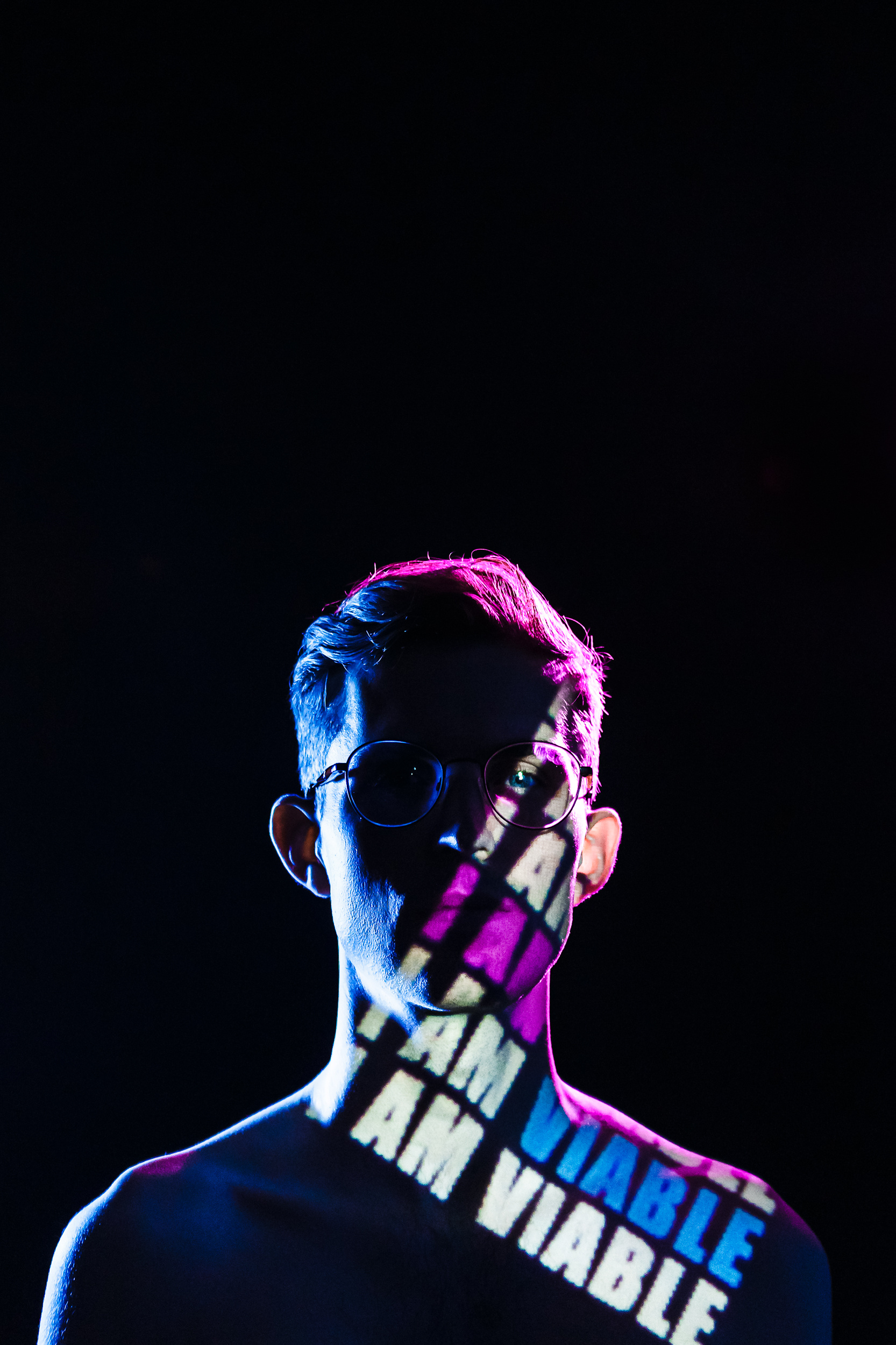
𝑱𝒊𝒎 – 𝑴𝒖𝒔𝒊𝒄 𝑷𝒓𝒐𝒅𝒖𝒄𝒆𝒓
‘We as creatives often defy the supposed separation between our work and the rest of our lives. By choosing to categorise jobs by their ‘viability’ (based on arbitrary metrics), our government is committing themselves to permanently writing off a vast section of our economy, whilst signalling the value (or lack thereof) they place in us. To be viable is to be able to live, grow and thrive.
The world changes, and it is naïve to believe that we are immune to the need for evolution and adaptation. Without being afforded the opportunity to adapt however, we are essentially condemning large swathes of the population to the scrapheap. It is easy to forget that this is a short term crisis. These jobs will once again be economically ‘viable’ in the not distant future. Choosing to ignore this fact will lead to vast and irrevocable long-term consequences, and massive cultural losses.
We must rethink how we perceive the creative arts in our culture. A government that sees its citizenry exclusively through a lens of labour and capital fails to understand the inherent (and crucially non-economic) value that creative expression contributes to society.’
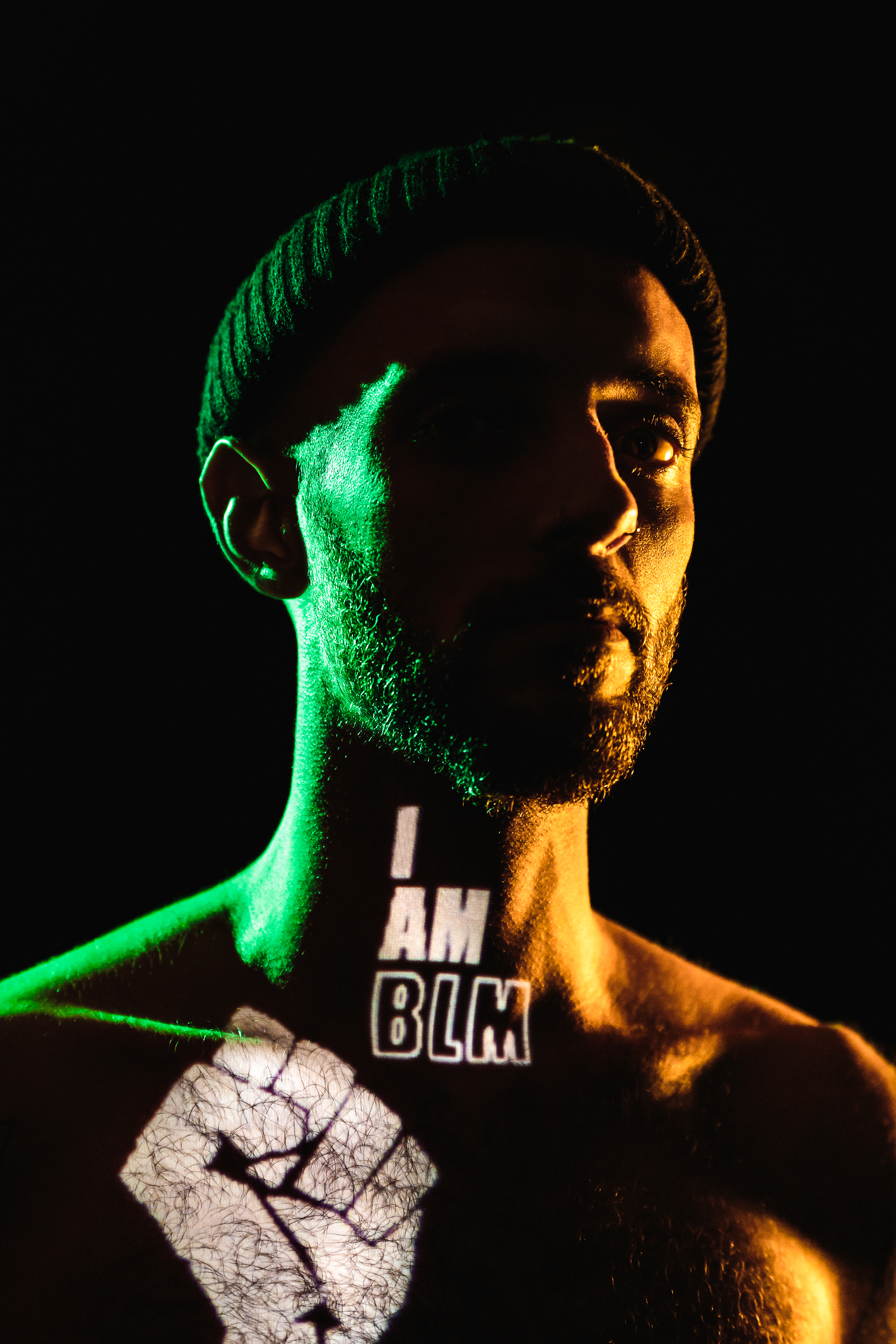
𝑲𝒉𝒂𝒍𝒊 – 𝑩𝑳𝑴
‘Where many names have been attempted to be brushed under the carpet, forgotten by the majority of the world. George Floyd’s death happened at a time the world was watching and couldn’t turn off. I feel lockdown was a massive part of people having to see this horrible death and react to it. Holding the people and the system responsible for the racial injustice in the US, UK and around the world.
Due to covid-19 all of my paid work disappeared and I was forced to adapt like many other creatives. I started documenting the things that mean a lot to me. First the historic BLM protest in Bristol on June 7th and the protests since but also documenting inspirational activists and important buildings in our black community. In such an uncertain and lonely time for humanity, my work has given me a new, incredibly strong family. Meeting people involved with the BLM movement and people working hard to end racism in our communities, both online and in person, seemed like an impossibility. But I have found connections with so many new people despite us being kept apart.’
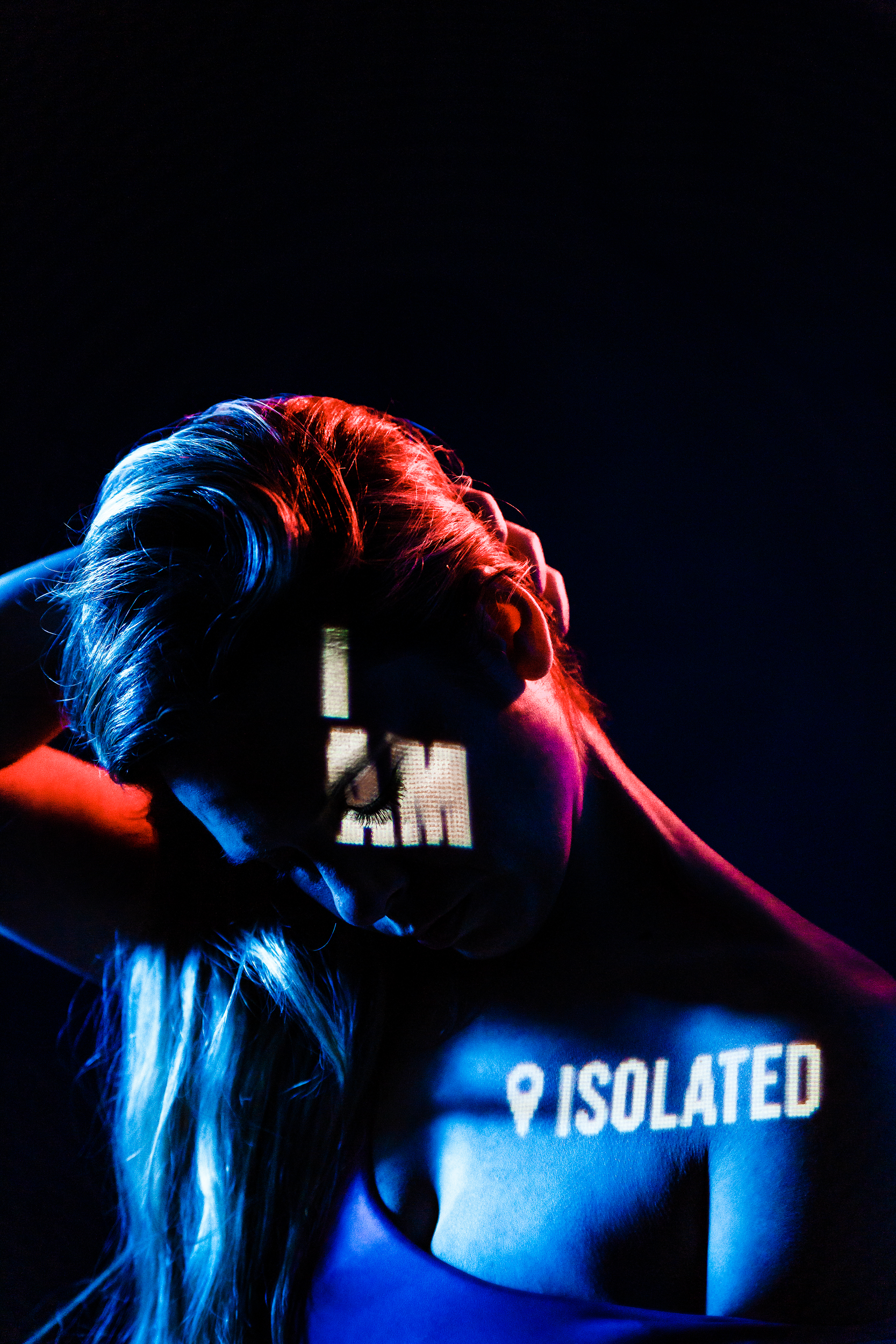
𝙇𝙚𝙤𝙧𝙖 – 𝙞𝙨𝙤𝙡𝙖𝙩𝙚𝙙
‘My entire family live in countries that, for the foreseeable future, I cannot visit.
Due to underlying health conditions, my partner was titled as ‘vulnerable’ and we were told to shield. I now work from home. I stopped reaching out to friends and I slipped into an incredible feeling of isolation. Staying indoors and reading what others were up to on the outside, the isolation grew much larger and I was dragged into a sense of us/them.
I have always lived far away from my family but now it felt different. The world no longer felt so small.
…and then I started bringing people into the studio. People opened up, were given an opportunity to be vulnerable. From positive stories of communities growing out of necessity in an isolating and politically fraught time to hardships such as feeling abandoned by our government, their stories have been both diverse and binding. These stories helped me realise that no matter how, we were all affected and this meant that we were all connected.
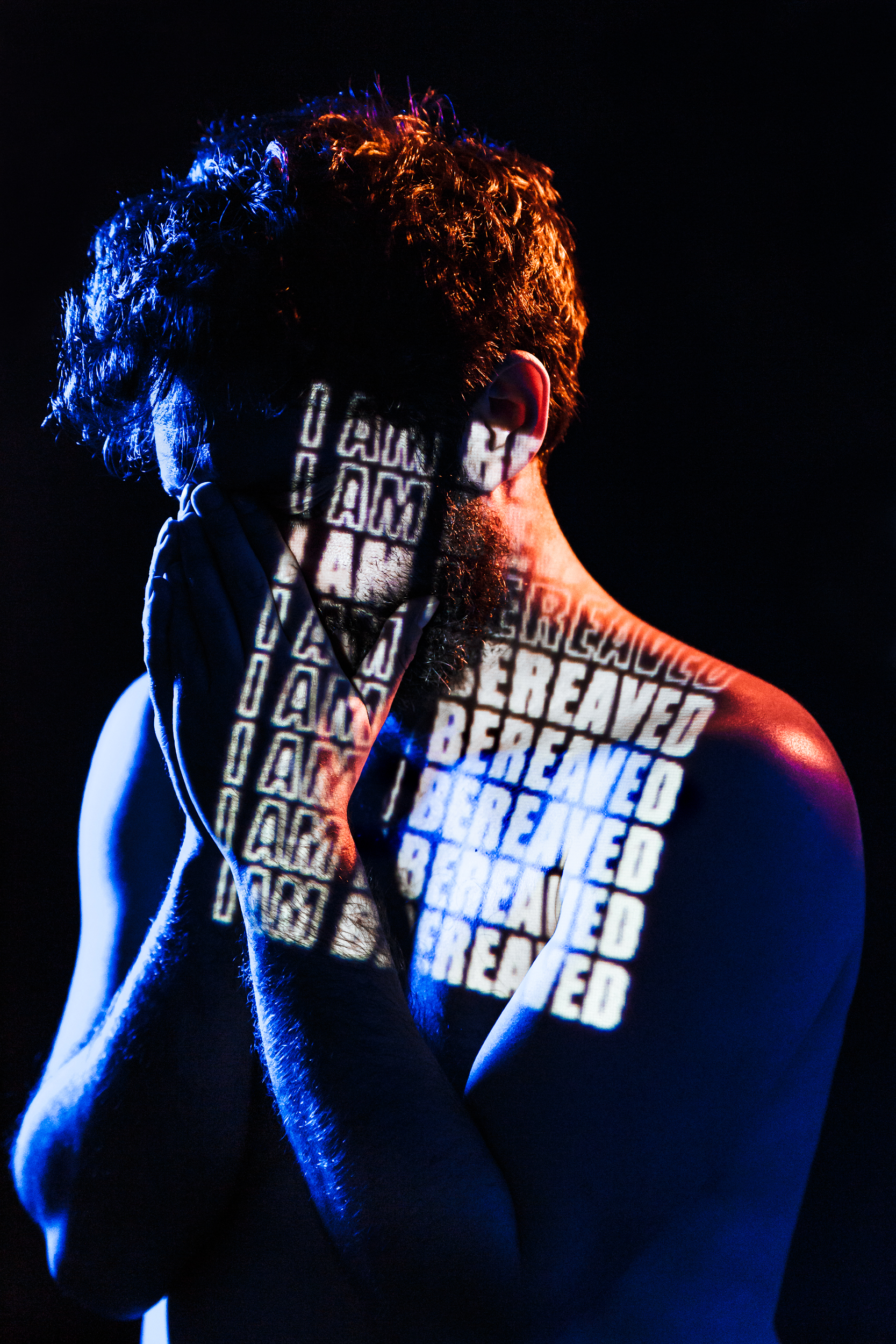
𝑳𝒖𝒄𝒂𝒔 – 𝑩𝒆𝒓𝒆𝒂𝒗𝒆𝒅
‘I lost two family members early this year, one to Covid-19 and one to suicide. Experiencing trauma and intense grief at the start of lockdown was unfathomably hard. Compounding this physical loss was the ambiguous grief many of us felt at the loss of the reality we once knew. At first it was a relief that the world had paused. I could take my time, and I could grieve in peace. But after a while I yearned for a ‘normal’ world to re-enter when I was ready, but that normal world stopped at the exact same moment as my loss. I attended one funeral but there were only four of us there. The other I had to watch on Zoom; the sad outcome of the ‘new normal’ that no-one wanted. A larger memorial isn’t possible, and so my grief is in a holding pattern until I can say goodbye in a fitting way. Grieving in a pandemic is trauma upon trauma.
I felt very alone in my grief, unable to hug anyone or be comforted in person. There were moments of respite in the summer but I am filled with dread at the long dark winter coming, alone with my grief and my own mental health issues.
Grief brings up a lot of emotions, including anger. Anger for the losses themselves, and anger at those that deny my reality, spouting conspiracy theories and marginalising my grief. I don’t want their deaths to be lost in the statistics. They are real people that were loved and are deeply missed.’
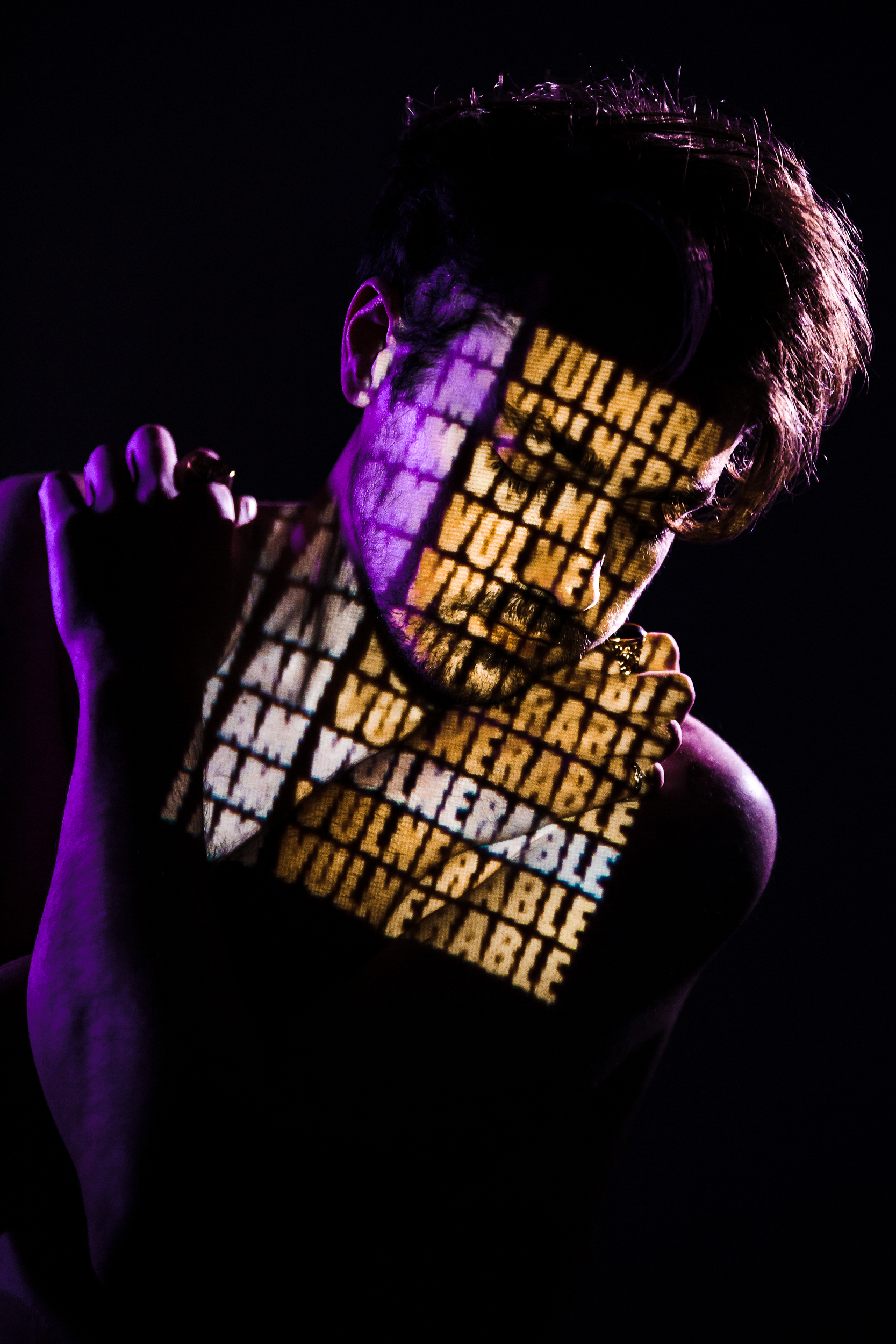
𝑵𝒊𝒄𝒌 – 𝒗𝒖𝒍𝒏𝒆𝒓𝒂𝒃𝒍𝒆
‘Before the pandemic my physical health was really suffering, I was in and out of hospitals for the best part of 2019 and I was in recovery from ileostomy surgery when the news of Covid hit.
Whilst in recovery and learning to cope with a Stoma, in May, the height of the pandemic, I was diagnosed with Cystic Fibrosis. I was told to strictly adhere to shielding advice, meaning I shouldn’t leave the house for any reason. Don’t see friends, go to the shop or even leave the house to exercise. An extremely mentally challenging ordeal.
To be considered vulnerable at 27, during this time especially, is extremely frustrating. The feeling that my life, and the lives of all considered vulnerable, have repeatedly been disregarded by all including the PM, who flippantly interchanges the words ‘vulnerable’ and ‘elderly.’
The word vulnerable has lost it’s meaning. Even friends and family don’t understand that it isn’t just the elderly at risk. I’ve had hurtful experiences with staff questioning me to specify my illness to be able to use services designed for the vulnerable.
“Don’t worry, only the vulnerable and elderly will die”, “lock away the vulnerable, let the rest of us get on with our lives”
I have as much of a desire to get back to a normal life as the general population, so why in the public eye is my life deemed less important, less worth living, less worth saving?’
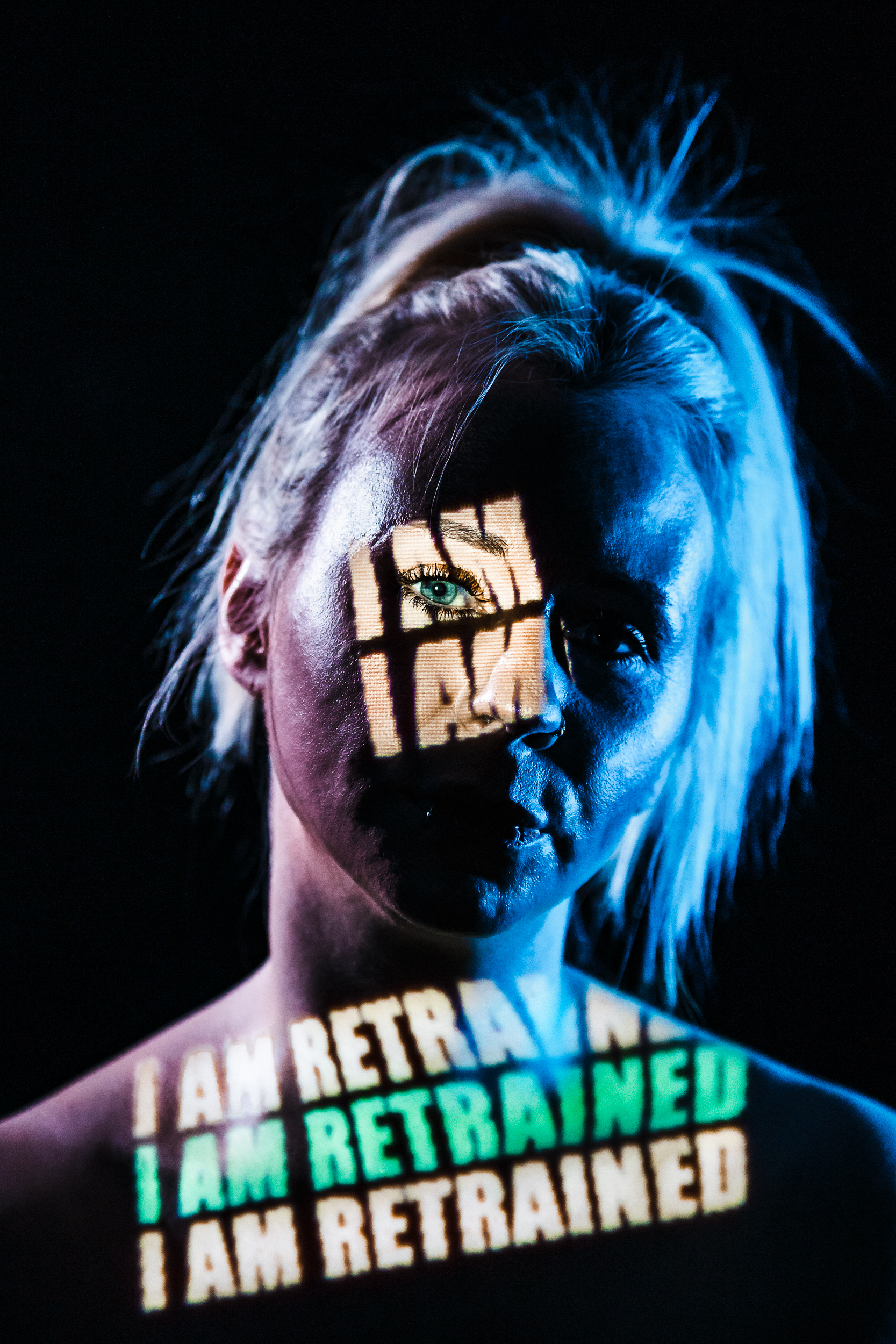
𝑹𝒖𝒃𝒚 – 𝒓𝒆𝒕𝒓𝒂𝒊𝒏𝒆𝒅
The arts have always been a huge part of my life. Before coronavirus hit, I toured the world, running the wardrobe department of theatre & ballet companies. I was fortunate enough to experience so many cultures, whilst doing the thing that I love. As lockdown started, I realised that my career was in jeopardy, with both travel & theatre grinding to a halt. Unfortunately, I slipped through the cracks in receiving any financial support from the government. If I couldn’t work in the arts, I would retrain in a sector that makes a difference & helps people; I became a domiciliary nurse. The role is extremely demanding, draining, has long working hours and very poor pay. However, I’ve met so many incredible people & heard so many inspiring stories. It has given me an enormous appreciation of all the people in the NHS who have dedicated their lives to supporting others.
Although I have no regrets about my journey into care work, the value that the government places in the arts is a complete insult. All of the incredible performers that I have worked with over the years are being told that they are not viable, this really angers me. All of the audiences we have performed in front of leave the venues feeling fulfilled & inspired. To neglect the value of this is to neglect an enormous part of human culture & expression. What are we without the arts? Life would be so hollow.
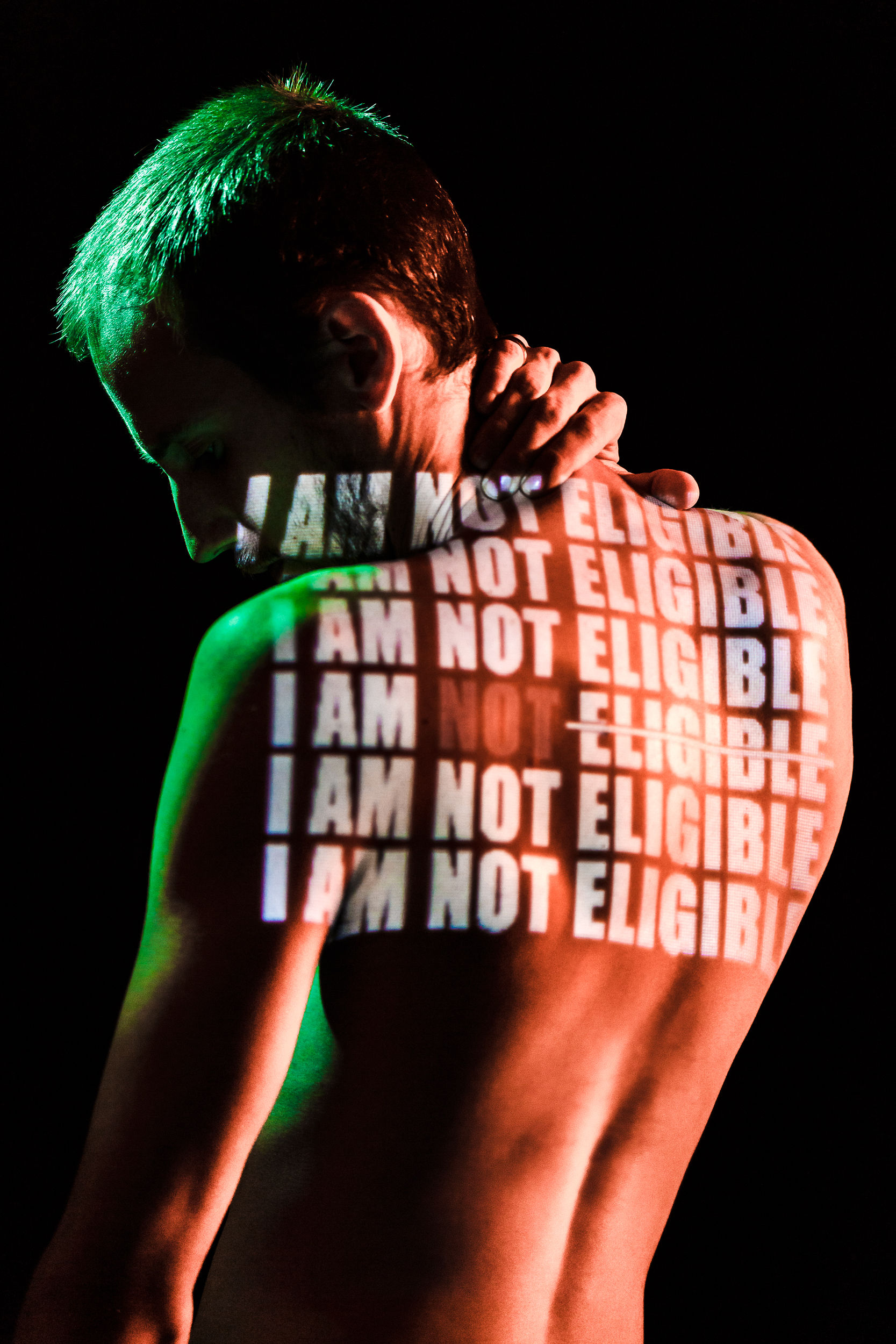
𝑭𝒓𝒂𝒏 – 𝑵𝒐𝒕 𝒆𝒍𝒊𝒈𝒊𝒃𝒍𝒆
‘I wish my story started with COVID-19 and the change of our industry. Unfortunately, my story started a year prior. I had medical issues that halted my career. I’ve followed the system to try to find help for both my career and my health, but I always found myself not eligible for support. I have been denied grants or programs for hundreds of reasons, slipping through the cracks of the system like many others but I don’t feel alone in being denied. Although that weight sometimes feels really heavy and almost impossible to control, I never feel alone, knowing that I and others keep pushing forward regardless of the limitations or distractions. I stand proud knowing I stand the line shoulder to shoulder with everyone fighting through this thunderstorm!’
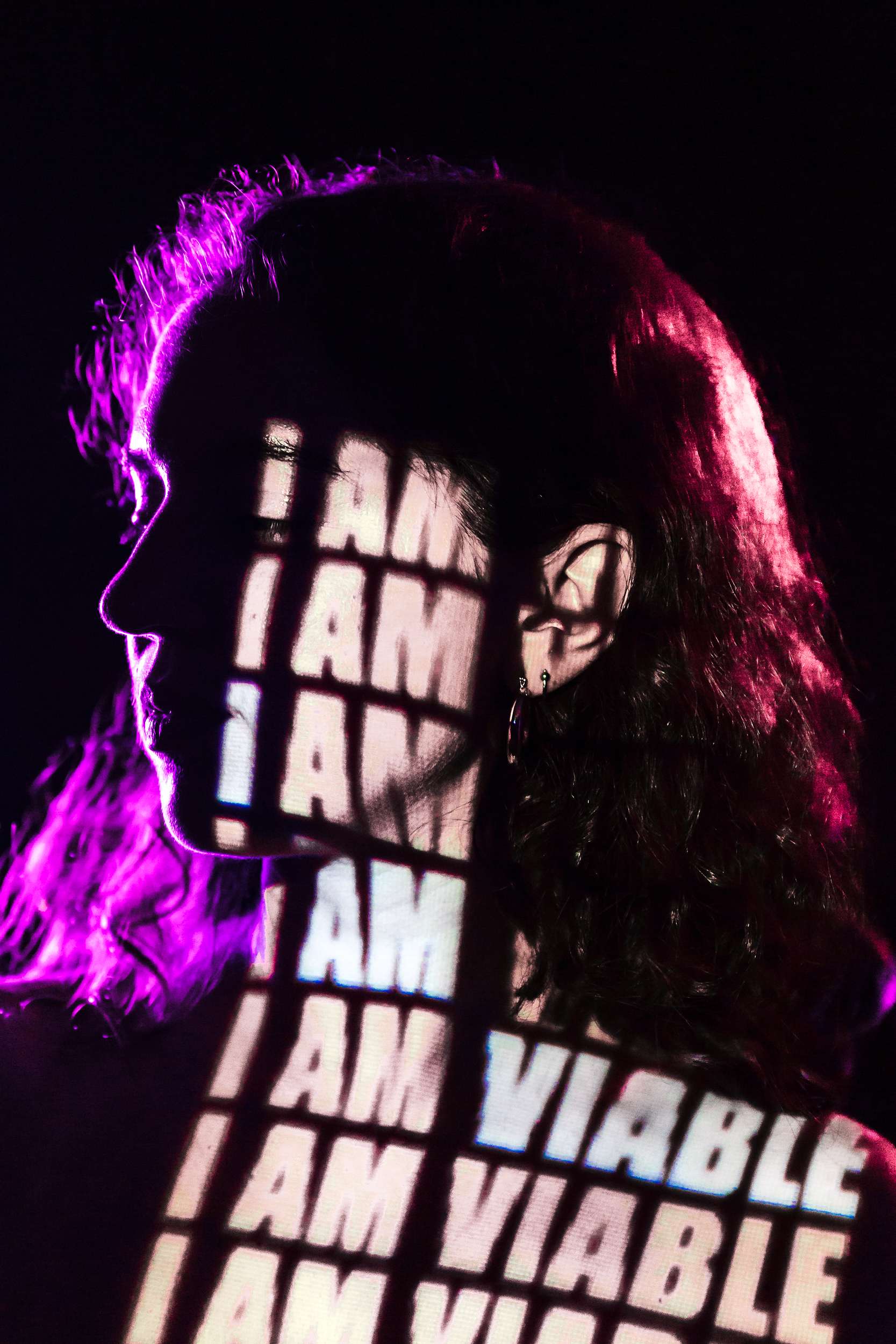
𝑺𝒂𝒓𝒂𝒉 – 𝑷𝒉𝒐𝒕𝒐𝒈𝒓𝒂𝒑𝒉𝒆𝒓
“The arts are an integral part of culture that not only invokes a sense of a community and expression, but captures the human experience and thereby sharing it with the world. To say that it is anything less than integral is incredibly short-sighted and a mis-step indeed. We are living in a time that requires everyone to come together (safely) and help our world adapt to the ever-changing circumstances. Situations like this do not define us by our job titles or our salary caps, but rather our ability to support and uplight the community – strength in numbers (metaphorically speaking)
Let’s not forget that the arts contribute to a multi-billion dollar industry, but remember on how it moves people through the expression of the human experience, something that is undeniably relatable, and should absolutely be preserved and protected. The world needs its artists.”
